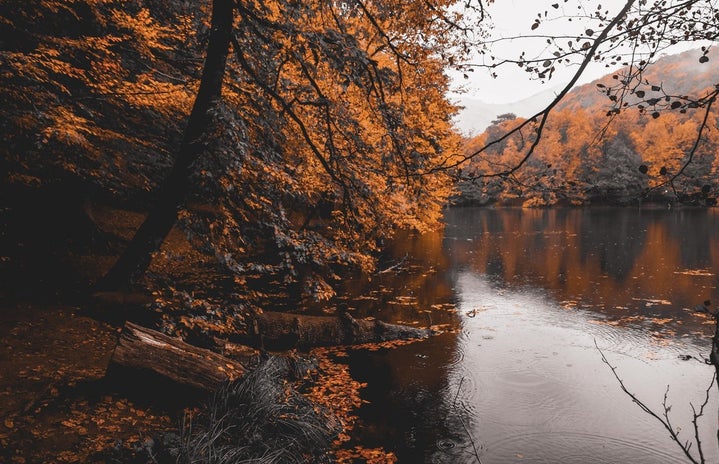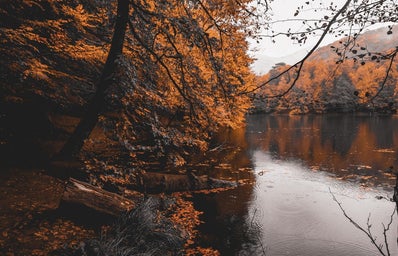In the two months that I’ve been eighteen, I’ve learned that adults are expected to never stop moving. We’re supposed to feel guilty for every nap in which we indulge ourselves, to measure productiveness in the number of dried out coffee cups stacked on our desks, to praise ourselves for getting through the day on as little sleep as possible. Maybe this is the product of the ridiculousness that is 2020, or just my own lack of focus, but I have found that the kind of youthful awe and presentness I used to have has just gone away. The kind of awe that makes us want to watch clouds and look for shapes that look like us, or trace our fingers along the ridges of a tree. Lately, it has been going from one place to another with my eyes glued forward.
And how fast time has gone by feels like a punch in the stomach. It’s like I woke up from a groggy nap and suddenly it was October.

I don’t have a remedy for slowing time or making the universe make sense. But there’s this Mary Oliver poem I read recently that spoke to me, and it might speak to you too. It’s called “How I Go Into The Woods,” and I became obsessed with this one line: “Besides, when I am alone I can become invisible, I can sit on top of a dune as motionless as an uprise of weeds, until the foxes run by concerned. I can hear the almost unbearable sound of the roses singing.”
There’s an indescribable feeling I get every time I stumble into nature and just stop to listen. I realize that every rustle of leaves has a pitch, that the crickets harmonize so particularly, that even the rustling grass has its own kind of whistle. It’s a kind of bliss, or peace, a sudden realization that I haven’t taken a deep breath in a while, or tasted the air, felt the sun, touched the dirt.

Now, I’m writing this as a native New Yorker. The closest thing to a backyard I had was a concrete playground on the corner of a busy avenue. But I think we as humans, and as college students in particular, take for granted that undefinable beauty of the sun spilling through the cracks of branches at just the right angle that it washes us in light, or a lake so undisturbed it could be a painting.
And I noticed how when I was locked up in my apartment in quarantine, each day went by like a blink. I rubbed my eyes and moved from one project to another without ever really thinking to just stop and listen to the world. I kept telling myself that if I wanted to do anything meaningful in the world, I had to calculate ambition in how bad my brain hurt at the end of the day. I kept telling myself I needed answers for everything, even for those questions that can’t really be put into words.
I think that when you sit in nature and just observe, it is the closest thing you will ever get to truth. And that’s not to say it could be put into science or philosophy or even known language. It’s a refuge from man-made atrocities, from every futile attempt we’ve made as a species to be beyond the natural world, to conquer it.
Every time I wake up for a sunrise, or find myself in an open space under the stars, or feel that cooled thrill of dunking my head underwater in a creek, I feel myself become relieved of everything. I remember that there is something bigger than myself that I am a part of. I feel comfortable in the knowledge that I will never truly understand why the universe is so big, so miraculous, so therapeutic. All I know is that I’m happiest when I can dig my fingers into the earth and touch the roots that feed us.
I’m old enough to see imagination slipping through my fingers, but young enough to have some kind of idealism. Perhaps it’s naive. Perhaps it’s too optimistic. But I’ve seen the sun set behind the bay and make the sky turn twenty different shades of pink. I’ve seen the beach at morning, seen the ospreys stir and go fishing in the stillest of waters. I’ve seen, from the distance, a mother deer nurse her baby, and then run off into a blanket of trees. There is too much to be amazed about to think that seeing the world is reading the most theory or visiting the most cities. The world is all around us. It’s right there. And if you just stop to listen, you’ll start to realize that there is more than the stack of unfinished work on your desk.




